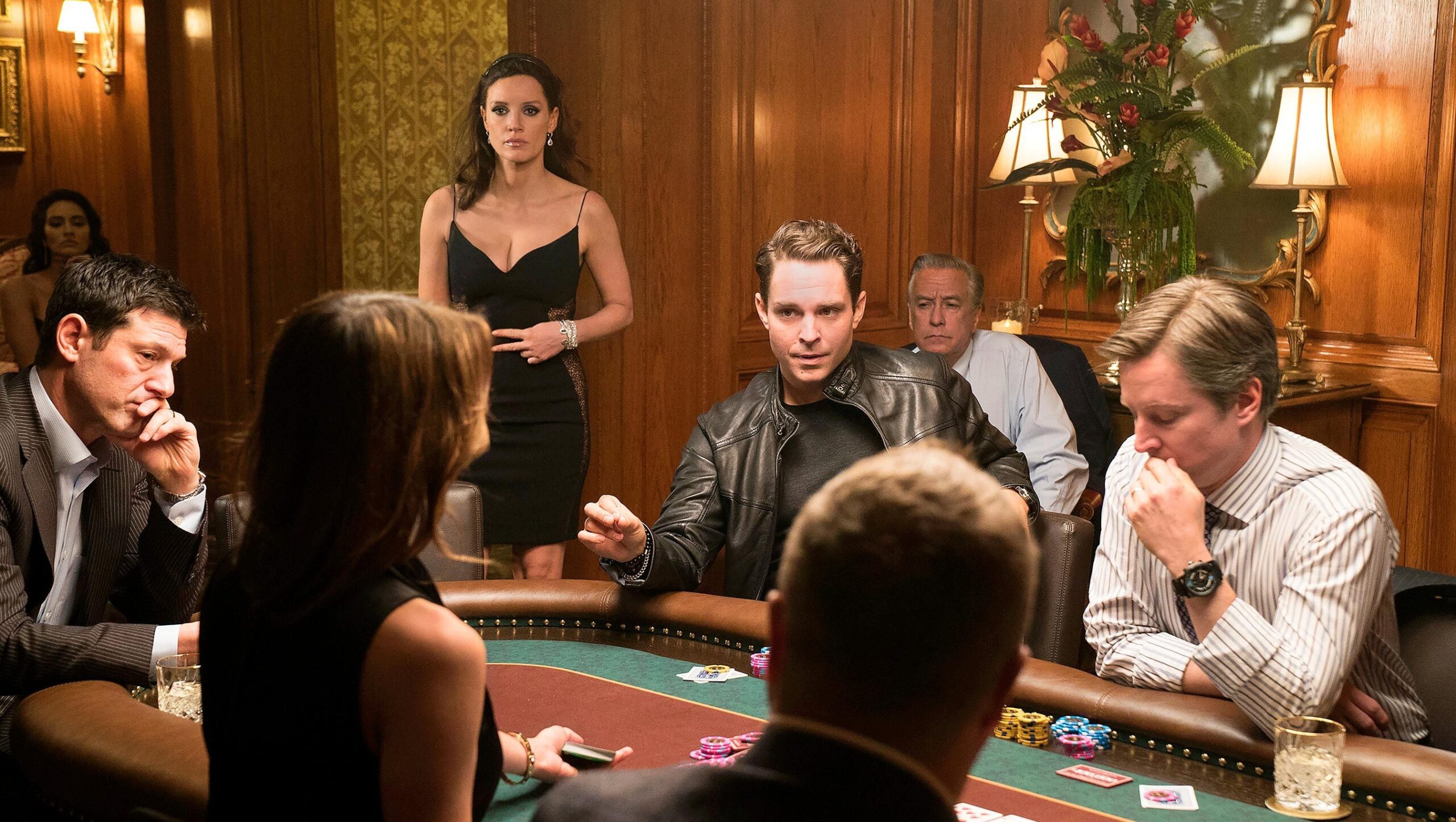In the film Casino Royale, Bond participates in a high-stakes Texas Hold’em game with consequences tied to his mission. The game he plays at Casino Royale in Montenegro is pivotal for his objective to undermine Le Chiffre, a financier for terrorists. Bond’s personality traits include a calm demeanor, intellectual sharpness, and an uncanny ability to read opponents. His successful bluff against Le Chiffre, despite holding an inferior hand, perfectly illustrates these traits. This iteration of Bond aligns with real-life traits observed in professional poker players who rely on calculating risks and making informed decisions to excel in their games.
The Passionate and Skilled Player
Mike McDermott from the 1998 film Rounders, portrayed by Matt Damon, represents the archetype of an intensely passionate and highly skilled poker player. At the story’s onset, Mike is depicted as a law student who loses his entire bankroll in a single poker hand against a menacing Russian mobster, Teddy KGB. To cope with his substantial loss, Mike abandons poker and focuses instead on his law studies and personal relationships. However, the allure of the poker table is too compelling. His childhood friend’s release from prison marks Mike’s inevitable return to underground poker. This character’s journey underscores the game’s financial stakes and explores individual purpose with accepting risks inherent in pursuing one’s talents.
The Seasoned Veteran
Lancey Howard from the film The Cincinnati Kid is the quintessential seasoned veteran in poker. Known for his extensive background and unwavering demeanor, Lancey embodies the archetype of a veteran poker player who has witnessed various scenarios at the poker table. His seasoned persona contrasts with the youthful ambition of Steve McQueen’s character and creates a narrative tension essential in dramatizing poker showdowns.
Celebrities like Jennifer Tilly exemplify a similar melding of entertainment and skill. Tilly boasts over $1 million in live poker cash and carries a coveted World Series of Poker bracelet, won in the Ladies No-Limit Texas Hold’em event of 2005. Similarly, British actor Michael Greco transitioned successfully from acting to the competitive poker world. Greco’s career echoes the integration of skill and public persona that defines many characters in poker movies.
Psychological and Strategic Depth
The psychological dynamics of poker players offer rich material for academic inquiry and cinematic representation. Maria Konnikova’s book, The Biggest Bluff, illustrates decision-making processes that go beyond sheer luck. Her work emphasizes the calculated risks and probabilistic thinking central to successful poker strategies. An example of this complexity is the involvement of professional poker player Davidi Kitai in a study conducted by Assistant Professor McKell Carter of the Institute of Cognitive Science at CU Boulder. The study used magnetic resonance imaging to probe how social information and brain activity interplay during poker games. This offered empirical insight into the strategic depth players must have.
Professional assessments, such as those by poker experts like Fedor Holz, often scrutinize the accuracy of poker scenes in movies. Holz’s analysis of Casino Royale and Rounders highlights the dramatic elements portrayed alongside technical inaccuracies. For instance, while intensely suspenseful, the all-in scene in Casino Royale contains decisions that Holz deems improbable from a professional perspective. Similarly, in Rounders, the interaction between Mike McDermott and Teddy KGB is lauded for its tension.
Another common archetype is the mentor or seasoned pro. Characters like Lancey Howard in The Cincinnati Kid and Henry Gondorff in The Sting are portrayed as rational figures guiding less experienced players through the game’s intricacies. Lancey Howard’s calm, strategic approach juxtaposes sharply with the dynamic ambitions of younger players.
Moreover, the underdog or novice archetype is a recurrent theme in films like Maverick and Mississippi Grind. These characters may start with limited skills but gradually build their proficiency through perseverance and learning. Bret Maverick, played by Mel Gibson, uses charm and wit to excel in poker.
Poker film portrayals often draw from factual frameworks of probability and psychology to enhance storytelling. Iconic hands, such as the royal flush, amplify a scene’s stakes and reflect the poker game’s improbable nature. These representations also echo internal character conflicts and ethical dilemmas.
Poker films frequently use themes like deception, honor, and resilience. Characters such as Molly Bloom in Molly’s Game exemplify the intricacies of managing underground poker games while dealing with legal hurdles. Bloom’s intelligence and adaptability portray the varied aspects of poker and the eclectic nature of its players.
Incorporating these detailed archetypes and psychological insights ensures a faithful depiction of poker in movies.











